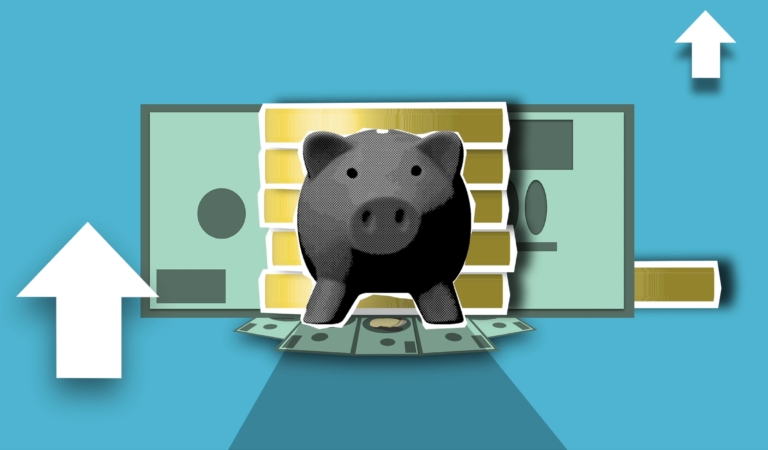Facing financial difficulties can be incredibly stressful, but you don’t have to navigate these challenges alone. Both credit counselors and debt settlement companies offer solutions to help you manage your debt and regain control of your finances.
This comprehensive guide will discuss the differences between these two options, their benefits, drawbacks, and how to choose the best solution for your unique situation.
Credit Counselors: Helping You Navigate Financial Turmoil
Credit counselors are professionals who provide guidance and advice on managing personal finances, dealing with debt, and improving credit scores. They typically work for non-profit agencies, although some may work for for-profit organizations.
Non-Profit vs. For-Profit Credit Counseling Agencies
Non-profit credit counseling agencies are funded by grants, donations, and fees from creditors. They must adhere to strict guidelines and standards set by organizations like the National Foundation for Credit Counseling (NFCC). For-profit credit counseling agencies, on the other hand, operate as businesses and may charge higher fees for their services.
Services Offered by Credit Counselors
Credit counselors offer a range of services, including:
- Budgeting and Financial Management: They help you develop a personalized budget and create a plan to improve your financial situation.
- Debt Management Plans (DMPs): They negotiate with your creditors to reduce interest rates, waive fees, and create a repayment plan tailored to your needs.
- Credit Education: They provide resources and guidance on improving your credit score and understanding credit reports.
- Housing Counseling: They offer assistance with housing-related issues, such as mortgage delinquency and foreclosure prevention.
Advantages of Working with a Credit Counselor
- Personalized financial guidance and support
- Lower interest rates and waived fees through DMPs
- Access to educational resources
- Non-profit agencies often offer free or low-cost services
Potential Drawbacks of Credit Counseling
- May impact your credit score temporarily if enrolled in a DMP
- Not all agencies are reputable; it’s essential to research and verify credentials
- Some for-profit agencies may charge high fees
Debt Settlement or Debt Relief Companies: A More Aggressive Approach
Debt settlement companies, also known as debt relief companies, provide services aimed at negotiating with creditors to reduce the total amount of debt owed. These companies typically charge a fee for their services, which may be a percentage of the debt enrolled or a percentage of the debt reduced.
How Debt Settlement Companies Operate
- Debt Assessment: The company evaluates your financial situation and total debt to determine if their services are suitable for you.
- Setting Up an Escrow Account: You will be instructed to stop making payments to your creditors and instead deposit money into an escrow account managed by the debt settlement company or a third party.
- Negotiation: Once you’ve accumulated enough funds in the escrow account, the company negotiates with your creditors to settle your debts for a reduced amount.
- Debt Settlement: If a settlement is reached, you’ll use the funds from the escrow account to pay the negotiated amount. The debt settlement company will then collect its fee.
Benefits of Debt Settlement Companies
- Potential to reduce the total amount of debt owed
- One-time payment to resolve debts, rather than ongoing monthly payments
- May help avoid bankruptcy in some cases
Risks and Disadvantages of Debt Settlement
- Can significantly damage your credit score
- Creditor harassment may continue during the negotiation process
- No guarantee that creditors will agree to a settlement
- Fees can be high, sometimes adding to the overall debt burden
- Forgiven debt may be considered taxable income by the IRS
CFPB’s Warning to Consumers
The Consumer Financial Protection Bureau (CFPB) warns that debt settlement companies can be costly and risky. They often charge high fees and advise stopping credit card payments, leading to extra fees, penalties, and creditor collection efforts. Some creditors may not work with your chosen company, and it may not settle all your debts, negatively impacting your credit scores and future credit opportunities.
Debt settlement could leave you in more debt than when you began. Most companies ask you to stop debt payments for negotiation purposes and to collect settlement funds, causing your original debt to grow due to late fees, interest, and other charges. If the company doesn’t settle most of your debts, the penalties and fees on unsettled debts may negate any savings on settled debts. Carefully evaluate your options before working with a debt settlement company and be skeptical of any quick and easy debt relief promises.
When seeking debt management options, watch for warning signs that a debt relief company may not prioritize your interests. The CFPB advises against companies that charge fees before settling debts, promise specific debt reduction percentages, or promote a “new government program” for personal credit card debt relief. Be cautious of companies guaranteeing debt elimination or instructing you to stop communicating with creditors. Claims of stopping all debt collection calls, lawsuits, or paying off unsecured debts for pennies on the dollar should also be treated with skepticism. Thoroughly research any debt relief company before engaging their services to avoid potential scams and adverse credit consequences.
PRO TIP:
If you’re considering working with a debt settlement company, it’s important to do your research first. Before making any decisions, reach out to your state Attorney General and local consumer protection agency to see if any complaints have been filed against the company you’re considering. Some states even require debt settlement companies to be licensed, so it’s worth checking with your state regulator or Attorney General to see if the company is licensed to operate in your state.
Consulting a bankruptcy attorney is also worth considering, as they can help you understand your options under the law. Some attorneys even offer free initial consultations.
It’s important to note that debt forgiveness may have tax consequences, as any forgiven debt may be counted as taxable income on your federal income taxes. Be sure to consult with a tax advisor or tax attorney to understand how forgiven debt may impact your taxes.
Choosing the Right Solution for Your Financial Situation
The choice between a credit counselor and a debt settlement company depends on your specific financial circumstances and goals. It’s crucial to carefully consider the benefits and drawbacks of each option before making a decision.
Comparing Credit Counselors and Debt Settlement Companies
| Feature | Credit Counselors | Debt Settlement Companies |
|---|---|---|
| Approach | Collaborative, educational | Aggressive, negotiation-based |
| Impact on Credit Score | Temporary, may improve | Significant negative impact |
| Payment Structure | Monthly payments | Lump-sum payment |
| Cost | Low-cost or free | Fees based on debt or savings |
| Tax Implications | None | Forgiven debt may be taxable |
Questions to Ask Before Deciding
- How will this option affect my credit score?
- What fees are associated with the services?
- How long will the process take?
- What guarantees or assurances does the company provide?
- Is the company accredited and reputable?
The Bottom Line
Understanding the differences between credit counselors and debt settlement companies is crucial when seeking help with debt management. By weighing the advantages and drawbacks of each option, and asking the right questions, you can make an informed decision and take the first steps toward financial freedom.







